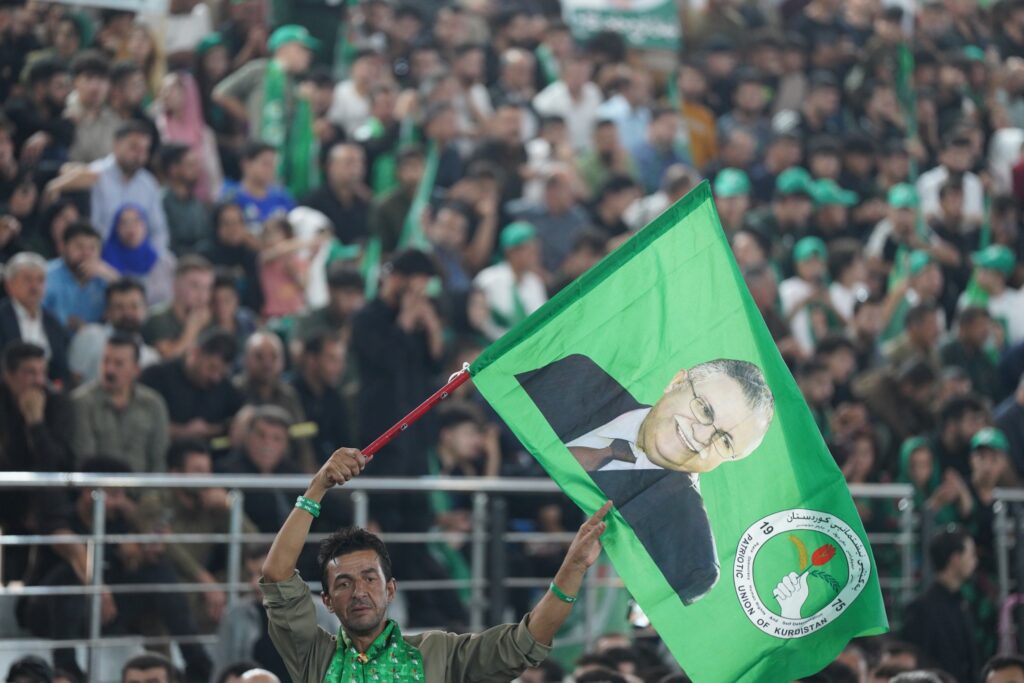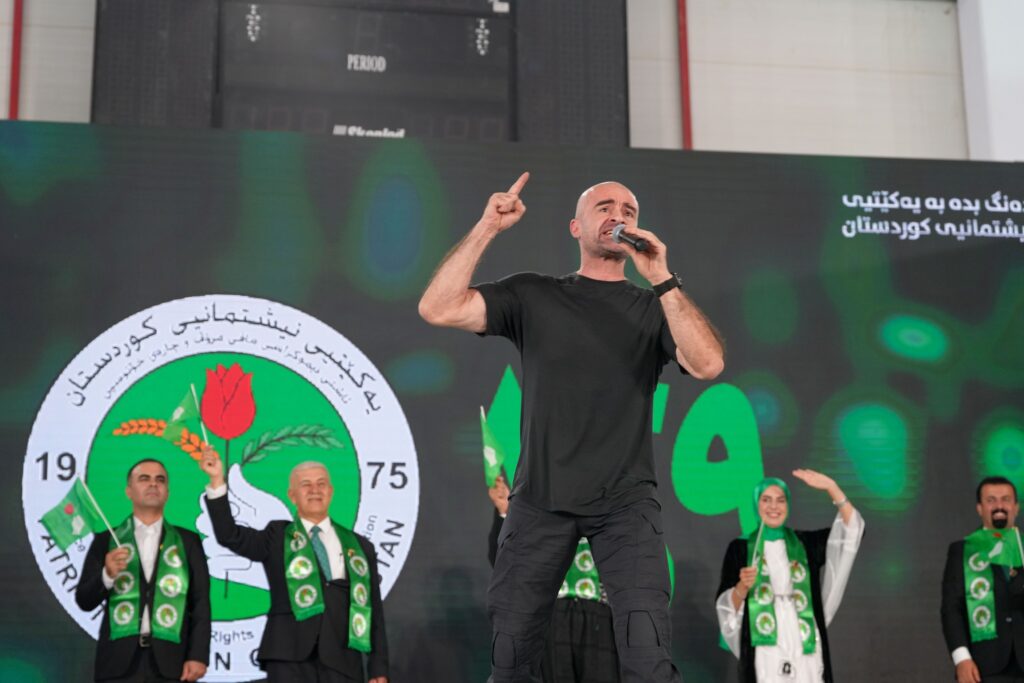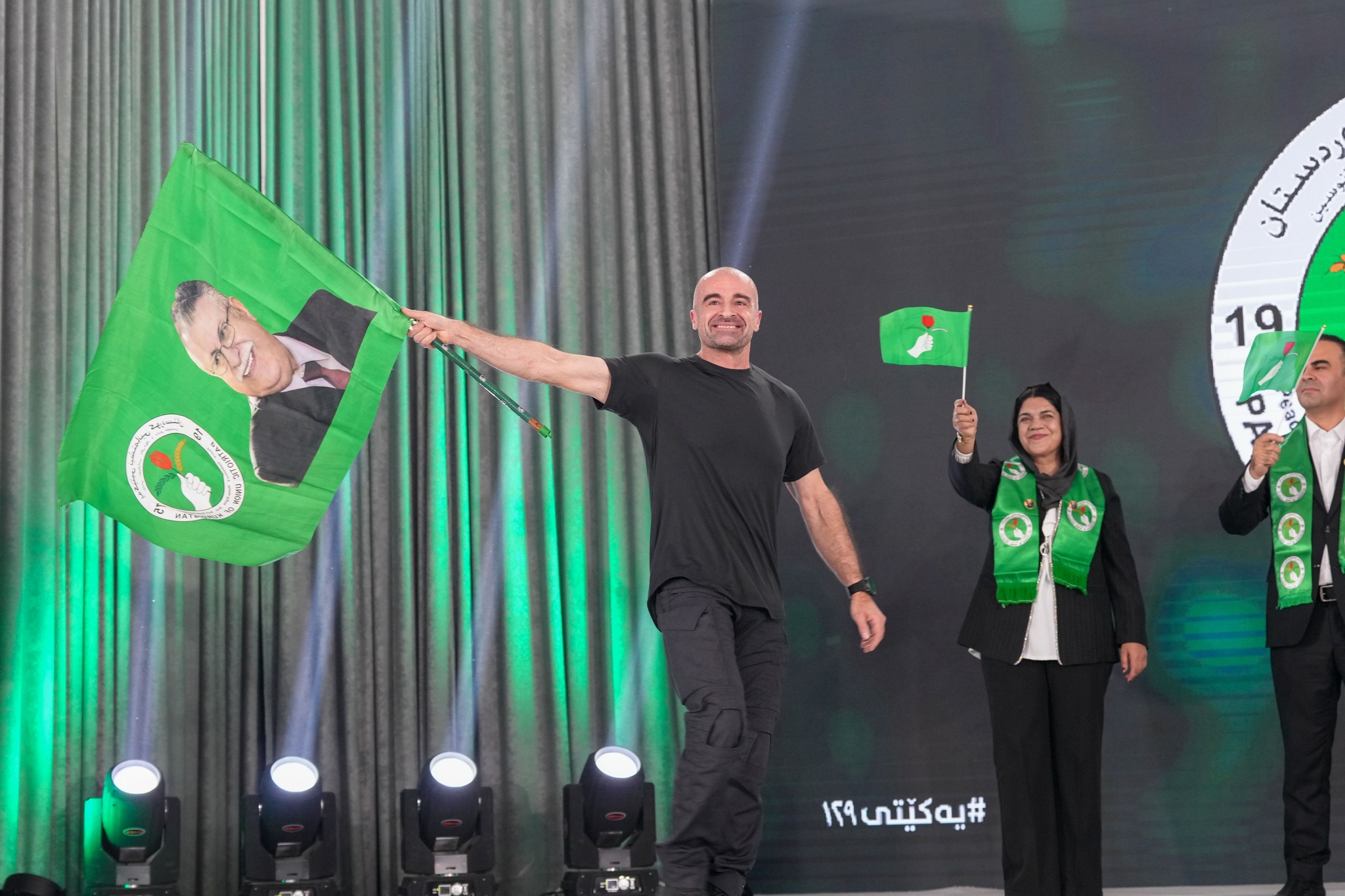An election for the Kurdistan parliament was scheduled for 2022, but October 20, 2024 is the fifth election date that has been set. Disputes between the KDP and the PUK were the cause of these delays. Both parties brought the process to a complete standstill, believing that going to the people would not advance their partisan agendas. The Iraqi Federal Supreme Court ultimately took control of the process, handing over technical operation of the elections to the federal Independent High Electoral Commission (IHEC).
Free and fair elections need an official framework in which all adult citizens can vote and voice their political opinions without fear of retaliation or coercion, where candidates can run for office equally, and where the state actively defends these rights and keeps outside the process. Although in theory the KRI has a legislative framework of this type, in reality it is subject to various customs, informalities, and contextual circumstances that lead to power disparities between political parties which affects voter behavior. In fact, extralegal sources account for a considerable portion of its democratic shortcomings. This shouldn’t come as a surprise to anyone who has even a passing familiarity with the political or historical history of the KRI. The most important reason why there is a coercive and unfair electoral playing field in the KRI is the pervasive influence of the KDP and the PUK on government institutions, the security forces, and the media. The ruling parties have dominated regional politics since at least 1991, and arguably before. They have every motivation to maintain that position and have many ways of doing so.
Together, the KDP and PUK control the top positions in the cabinet of the Kurdistan Regional Government (KRG) and the Kurdistan parliament. They also distribute jobs and favors in the ministries and regional government departments and have an impact on the appointment of judges, their power being divided into two exclusive geographic zones. Approximately two-thirds of Peshmerga soldiers are members of party-funded groups under the leadership of partisan officers. The two parties hold complete authority over the internal security forces. They control the oil and gas sector, have access to governmental resources, and have close relationships to the corporate community. Overall, this gives the KDP and the PUK a significant institutional edge over the weak opposition parties, enabling them to monopolize a great deal of the region’s authority and resources.
However, many political observers argue this upcoming election scheduled to take place on 20 October 2024, marks a watershed or the region’s political landscape – for three reasons. First, the international community sees the forthcoming election as a crucial step in restoring political legitimacy and stability to the Kurdistan Regional Government (KRG) after Iraq’s Federal Supreme Court decided that the previous parliamentary term extension was unconstitutional and required restructuring of the electoral constituencies; reorganization of the electoral seats to reduce the number of MPs to 100; and awarding quotas for women and minorities. Second, overseeing the electoral process was assigned to the Independent High Electoral Commission of Iraq, which would make it fairer and more transparent than previous general elections in Kurdistan. Third, the process of voting will be made more secure: instead of showing a national ID card, voters will have to show a bio card that cannot be easily faked.

Party strategies in the upcoming election
There has not been an independent and impartial poll in the Kurdistan region to give us an estimated prediction of upcoming election results, we have been able to assess the electoral strategies of the political parties from interviews of many senior independent commentators who conduct polls and whose pre-election predictions have been quite accurate in the past. We analyse each party’s strategy and their strengths and weakness based on our interviews with these experts. The Kurdistan Democratic Party (KDP) is preparing for the upcoming 2024 elections with a strategic focus on consolidating its power and addressing key issues relevant to voters. The KDP campaigns on its record of stability and security in the Kurdistan Region in Erbil and Duhok provinces, portraying itself as a strong and reliable leader compared to its rivals. The party highlights its initiatives for economic growth and infrastructure development, aiming to appeal to voters concerned about job creation and living standards. The KDP continues to emphasize Kurdish nationalism and the importance of autonomy within Iraq, which resonates with many voters who prioritize Kurdish identity and rights. Understanding the significance of younger voters, the KDP aims to engage this demographic through programs and policies that address their needs. While the KDP has a strong base, it may still seek alliances with smaller parties to strengthen its position in the parliament, especially in the face of opposition from the PUK and Gorran.
However, the KDP has been criticized for issues related to poor governance, corruption, and delay of public salaries – charges it is trying to address to maintain public trust. It remains a powerful force in the Kurdistan Region’s political landscape, but its ability to navigate economic challenges and meet public expectations will be crucial in the upcoming election. Many analysts believe that it will keep the support of its base – its own fixed voters – but in this election its seats will decrease to from 45 to 32 to 33 seats because the electoral process is now under the supervision of Baghdad, and this will make it very difficult for parties such as the KDP to manipulate the process. Also, voters must show a bio card which means only Iraqis will be allowed to vote, so refugees such as Syrians cannot participate in this election. These irregularities happened in the past and inflated the number of votes cast for the ruling KDP party.
The Patriotic Union of Kurdistan (PUK)’s strategy for the upcoming elections in 2024 is to seek alliances with other parties, including Gorran and smaller groups, to strengthen its position against the KDP. However, the current situation doesn’t allow PUK to build a broad coalition. If the opposition parties, particularly the PUK and Gorran or other Islamic parties, were to unite their platforms effectively, they could pose a challenge to the KDP’s dominance, but it seems there will be no such united opposition for this upcoming election. So, the PUK is largely on its own in challenging the KDP. The PUK is focusing on issues such as economic development, unemployment, and public services. Its platform emphasizes accountability and reform to attract voters who are dissatisfied with the current political situation. Recognizing the importance of younger voters, the PUK is geared to engage more actively with this demographic, promoting initiatives that address their concerns and aspirations. The PUK has historically positioned itself as a more moderate and inclusive party than the KDP, and it highlights its diplomatic efforts to forge closer relationships with Baghdad and the Shia dominated government in Baghdad, aiming to present itself as a stabilizing force in the region.
Given the region’s economic challenges, the PUK must articulate clear and viable solutions to resonate with voters. Rebuilding public trust after years of political stagnation and corruption accusations will be a significant hurdle. The PUK’s performance in the upcoming election will depend on its ability to adapt to the evolving political landscape, connect with voters, and effectively communicate its vision for the future of the Kurdistan Region. One observer believed that PUK could gain more votes in the election if the party’s leadership could repeat its recent experience in local elections in Mosul and Kirkuk provinces in 2023 where it recorded a better result than the PDK. Its successful strategy there was to divide each province into multiple geographical areas and each area into very small zones and focus on capturing the majority of its voters in each zone. One observer said at least 10 voters were won over by each PUK member.
However, maintaining unity within its own ranks is crucial for the PUK, especially in light of past internal divisions. A cohesive front is essential to present a strong challenge in the elections. In the past two years, the party has been engulfed in internal conflicts, losing many older political leaders including not only Lahur Sheikh Jangi but also Mala Bakhtyar, a former PUK politburo member who was expelled recently. There have been significant rifts within the party, leading to a lack of cohesion and unified leadership. The rise of rival parties in the party, particularly the People’s Front, has diminished the PUK’s influence and voter support. Changes in political alliances and coalitions have further complicated the PUK’s position in the region.
Nevertheless, if the PUK emphasises its closer diplomatic relationships with Baghdad and the Shia dominated government, aiming to present itself as a means to solve the issues between Baghdad and the region such as oil and the budget which are forefront issues in the mind of the public at the moment, this could make its position stronger in the upcoming election. According to one commentator, the PUK’s votes are likely to rise and its seats will increase from 18 to 26.
With regard to the Gorran Movement’s strategy, as a reformist party, Gorran initially attracted support by promising significant changes. Its platform focuses on addressing the economic challenges facing the region and improving public services. Gorran has successfully attracted younger voters by emphasizing issues like education, job creation, and democratic participation – a strategy that paid off in the 2009 election when it gained 25 out of 111 seats which was an astonishing result against the two main dominant parties. Gorran has positioned itself as a viable alternative to the traditional parties, often criticizing the established political elite for their failure to address the needs of the populace.
However, the party’s ability to maintain its support has declined in recent years, as indicated in its election result in 2018 when its seats dropped from 25 to 12. The Gorran Movement’s performance in the upcoming election depends on its ability to articulate a clear vision for governance and effectively engage with the electorate on pressing issues. Its reformist stance and appeal to younger voters makes it still a significant player in Kurdish politics, but it faces four challenges that have contributed to its weakened position in recent years. First, like other political parties, Gorran has experienced factionalism and disagreements among its leadership and members, which has diluted its effectiveness and public image. Second, the economic difficulties in the region, including unemployment, have strained public trust in all political parties, including Gorran. Third, Gorran has sometimes found itself in coalitions that dilute its message or force compromises that do not align with its reformist agenda, leading to criticism from its base. Fourth, the dominance of the KDP and PUK in media narratives has overshadowed Gorran’s initiatives and messages, making it harder for the party to reach potential voters. These factors have made it difficult for Gorran to maintain its earlier momentum and influence within the Kurdistan Region’s political arena, and commentators predict it is unlikely to win more than six seats in the election.
Nawai Nwe (the New Generation Movement) under the leadership of Shaswar Abdul Wahid is a new movement in the region and has significant potential to drive change and development, contributing to a more prosperous and stable future for the region. However, although there is a desire for change, many young voters feel that the NGM’s current candidates do not adequately represent their interests or values. This is partly because many of the party’s previous MPs did not have experience of implementing its policies in previous years. It is also because some of its MPs left the party while in the parliament, some of them transferring their affiliation to the PUK or PDK. These behaviors by NGM’s MPs have led to frustration and disengagement among voters, especially young voters, decreasing the party’s likely voter turnout in the election. Some observers believe that in a most probable scenario, the NGM’s will get only 6-8 seats
Finally, the People’s Front strategy is to connect with younger voters and promote a more progressive agenda, addressing issues like economic development and good governance. As the 2024 election day approaches, Lahur’s role in campaign strategy has emphasised the party’s united front and its commitment to human rights and civil liberties. The geographical focus of Lahur is Sulaymaniyah, many political analysts believe this election could be the last chance for Lahur to survive in the political landscape. But according to informal polls, the prospects for the People’s Front are weaker than many expected. One neutral observer believes that in a most probable scenario, the People’s Front will get only 3 to 4 seats, because many political leaders and supporters who were previously close to Lahur have remained in the PUK party to avoid losing their privileges and they are not likely to vote for the People’s Front.

Conclusion
Both the main political parties, the KDP and the PUK, are facing dissatisfaction from voters. However, in Erbil and Dohuk provinces, the KDP encounters less resistance than does the PUK in Sulaymaniyah province. Political competition has been stifled as a result of the KDP’s ability to stay cohesive and sustain support through a combination of co-optation and control. Due to its influence over state finances, jobs, and resource flows, a large number of voters in Erbil and Dohuk now depend on it for their daily needs. By contrast, because of its fragmentation, the PUK has not been able to use a comparable strategy in Sulaymaniyah: gaps created by this fragmentation have allowed other organizations to flourish. Yet it is unclear if opposition parties in Sulaymaniyah can do more than just voice discontent: the Gorran Movement, the New Generation Movement, and the People’s Front may actually turn out to be useful for the PUK’s ruling establishment in the province. With their inflammatory rhetoric and undefined ideas for reform, they could be channeling anger on the streets and creating the appearance of open democratic debate without posing a real challenge to the PUK and the political arrangement that PUK has built over the years in Sulaymaniyah. Further, if the PUK could repeat its recent experience of Kirkuk and Mosul’s local election and capitalize on its closer diplomatic relationships with Baghdad and the Shia dominated Iraqi government, it could make its position stronger in this upcoming election.


